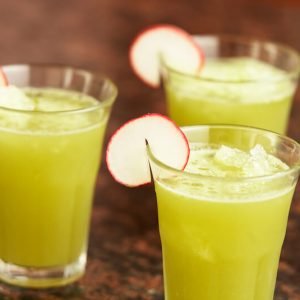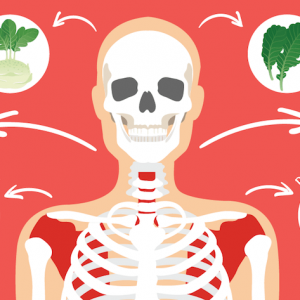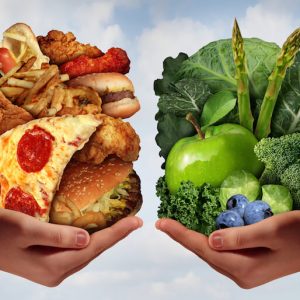
It seems to be the case that there is a lot of confusion about whether milk and other dairy products create mucus in the body.
The Dairy Council denies that there is any association between milk and increased mucus production, but personal accounts (including myself) and other scientific studies have proven otherwise.
Bias in Nutrition Studies
First I would like to address the fact that nutrition studies funded by food companies (like dairy councils) are almost always biased in their interest.
A new study, co-authored by Harvard researchers and analysts from the Centre for Science in the Public Interest, found just that. They documented widespread bias in nutrition studies funded with industry money. The study they carried out questioned whether the science behind nutrition recommendations is, in fact, legitimate (1).
Dr. David Ludwig, director of the clinical weight loss program at the Children’s Hospital in Boston, analyzed 206 studies published between 1999 and 2003. He decided to focus mainly on milk and other fruit juices and soft drinks, as those beverages are “highly profitable and heavily advertised to children.”
Dr. Ludwig had a group of investigators analyze nutrition studies’ scientific conclusions without knowing anything about the financial sponsorship they had received. A separate group looked up who funded the studies, without knowing anything about the first group’s conclusions.
What did they find? When a food company pays for a scientific article, the results are eight times more likely to be favorable to the company’s financial interests than if the study were independently funded.
So of course, when we see studies funded by the Dairy Council and other dairy companies, we can be rest assured that the results are going to be in favor of the dairy industry. This is similar to what we see when milk gets promoted as building “better bones,” when in fact it does the exact opposite.
According to Kelly Brownell, director of the Rudd Centre for Food Policy and Obesity at Yale University, “both the dairy and the soft drink industries are notorious for giving investigators money to do studies that typically find things favorable to the industry. And if the studies are biased, which they appear to be, we’re not getting the correct picture (2).” Brownell goes on to say that while the studies are published and peer-reviewed in scientific journals, it is still no guarantee that the researchers or their conclusions are free of bias.
Whether the questions are framed in ways to make them more favorable or studies with negative conclusions are never published, always consider the source of where the information you’re looking at comes from. Who paid for the study you’re getting the information?
Dairy and Mucus Production
While I am not lactose intolerant, I did suffer from a lot of mucus production before giving up dairy. I receive countless e-mails and comments from people about how their mucus and phlegm issues cleared up as soon as they gave up dairy. And while I do recognize that everyone’s experiences are different, I wanted to take a look into the studies that have found dairy to be a trigger for mucus production.
If you’re not aware, casein is a milk protein and is usually involved in the mucus response. And while I do not, by any means, support the use of animals for study, some of the studies that examine dairy and mucus involve rats. Maybe one day we can get past the use of animals to study on, and instead use easier methods of study, like personal accounts of how individuals feel after eliminating a certain food group (aka. dairy) from their diets – just like I did, and noticed significant changes in how I felt.
Study #1: the milk protein casein breaks down in the stomach to produce a substance called casomorphin, which has opioid effects (this makes sense from an evolutionary standpoint as species survival may depend on a close maternal bond between infant and mother). Opioid receptors on the mucous glands in the respiratory tract may respond to the casomorphin from milk, which stimulates the production and secretion of mucus from these respiratory glands. This explains why a subgroup of the population who have increased respiratory tract mucus production find that many of their symptoms, including asthma, improve on a dairy elimination diet.
Study #2: feeding higher levels of dietary animal protein (like casein used in this study) increases colonic DNA damage and thins the colonic mucus barrier in rats. Thinning of the natural mucus barrier in the colon often leads to issues like irritable bowel syndrome (we all have mucosal cells in our body (it’s a good thing, and protects the organs). It’s when we give the body irritating foods, like dairy, when mucus production goes into overdrive). This leads to modified mucus production in the colon and can result in things like mucus showing up in the stool. I used to suffer from irritable bowel syndrome, and once I gave up dairy, I no longer suffered from the symptoms (including mucus in my stool).
The University of Maryland Medical Centre states on their website that to reduce symptoms of cystic fibrosis, to eliminate potential food allergens and foods that increase mucus production, including dairy (milk, cheese, sour cream, and ice cream), wheat (gluten), soy and corn, and to eat more foods that decrease mucus production like garlic, onions, watercress, horseradish, mustard, parsley, celery, and lemon.
WebMD, a popular medical website also supports the hypothesis that phlegm can be made worse with the ingestion of dairy products like milk, ice cream, and cheese. Dr. Neil L. Kao, MD, associate professor of medicine at the University of South Carolina School of Medicine says on WedMD that the reason people produce more mucus when they drink milk is because of gustatory rhinitis. Gustatory rhinitis is a reflex reaction triggered by eating. It is also why your nose runs when you eat hot peppers – the same thing happens when some people consume dairy products. Hot peppers are an irritant, and so is dairy. Rhinitis means inflammation of the nasal passages, and when the body triggers the inflammatory response, it usually means it is trying to protect itself or repair itself from damage (aka. from the irritant (dairy) you put in your body).
Mayo Clinic also states that drinking milk makes phlegm thicker and more irritating to your throat than it normally would be when you have a sore throat. Unfortunately, the same applies to when your throat isn’t sore – you just don’t notice it as much when your throat isn’t sore and irritated.
Studies Funded By Dairy Industry
To demonstrate just a few studies (amongst many others) that are funded by the dairy industry, I’ll leave a short list below. These studies, of course, only mention positive results. You’ll never find a negative study result being funded by the dairy industry.
Study #1 – Funded by the Swiss Federal Research Station for Animal Production and Dairy Products (ALP).
Study #2 – Funded by the Global Dairy Platform, Dairy Research Institute, and Dairy Australia. An author of the study received the Wiebe Visser International Dairy Nutrition Prize from the Dutch Dairy Association’s (NZO) Utrecht Group. Another author of the study is the recipient of research grants from the Danish Dairy Research Foundation, the Global Dairy Platform, the Danish Agriculture and Food Council and the GEIE European Milk Forum.
Study #3 – Studies lead author, Jonathon Maguire, has a long history of receiving money from the dairy industry and of publishing studies with unsubstantiated conclusions that are favorable to the dairy industry (3). In this study, it is suggested that cow’s milk is essential for obtaining vitamin D, but the problem here is that vitamin D isn’t even found naturally in milk – it’s artificially added by milk processors. The best place to get vitamin D? The sun. This study was a project of TARGet Kids, which lists as funders – Dairy Farmers of Ontario and the Danone Institute.
Study #4 – Fully funded by the dairy industry, including the Dairy Research Institute and the Danish Dairy Research Foundation. The study was criticized in a letter to the editor of the journal, and stated that the “experimental diets were apparently designed so that the possibly desired conclusion could be drawn (4).”
The National Osteoporosis Society also warned that diets, which cut out dairy, could be a “ticking time bomb” for young people’s bone health, a claim made after the Society carried out a survey that found a fifth of under-25s has cut down on or completely given up dairy.
What this scaremongering survey fails to mention is that the National Osteoporosis Society is funded by a dairy company – Yoplait (5) – and that the company “donates annually to the National Osteoporosis Society in the UK and the Irish Osteoporosis in Ireland (6).”
Of course, this is false information that the National Osteoporosis Society is spreading, as children and adults alike can get calcium from plant-food sources like kale, sesame seeds, okra, dried figs, chia seeds, almonds and more. Calcium from plant-based sources is actually better for you than dairy, as the high acidity in dairy actually buffers the pH in the body, stripping alkaline minerals (like calcium) from the bones.
Can You Get Enough Calcium From Plants?
Quick answer: yes!
Many people aren’t aware that certain plant foods are high in calcium. This is because the dairy industry pushes its products so hard through marketing and advertising that they have completely brain-washed society into thinking dairy is the only way we can get calcium.
This is far from the truth!
Plant foods are actually some of the best sources of calcium. There are two reasons for this.
- Dairy is high acid, and plant foods are alkaline. The high acidity of dairy actually makes the body pull alkaline minerals from the bones (like calcium and magnesium), making them weaker and more prone to fracture. Plant foods, on the other hand, are mineral-rich and don’t strip alkaline minerals from our bones.
- Plant foods are just high in calcium, period! Everything from bok choy to kale and collards. Just two tablespoons of chia seeds contain six times the amount of calcium found in a glass of milk! You can find an entire list of plant-based foods high in calcium here.
So instead of reaching for a container of dairy the next time you’re at the grocery store, why not reach for some coconut milk? I highly suggest making your own oat or almond milk, because it is much easier (and cheaper) than buying your own! Most of the almond milk in stores is watered down with other ingredients too, so by making your own, you’ll make sure you’re only getting the good stuff.
I personally love making my own coconut yogurt. You can find this recipe and more in my Freedom from Inflammation recipe eBook, which is packed with over 50+ plant-based recipes to reduce inflammation in your body to restore your health!

The Bottom Line
While many believe that dairy is not the cause of mucus – studies say otherwise. The studies that claim dairy doesn’t create mucus are directly funded by the dairy industry, so massive bias lies in resultant data.
Regardless of studies and science, when will people start listening to their body and recognizing what certain foods elicit in their body upon consumption? What do you think? Do you notice a difference when you stop consuming dairy?








I’m assuming that drinking lactose free milk will not make a difference since the casein protein still present. Right?
Correct.
Is butter safe to use ? I am just now stopping my use of milk and cheese and cream. But i do like to use butter.
Butter is still technically a dairy product, so I would avoid it.
I have been having excessive mucus in my throat for 6 months now. It’s a little better as I am not spitting up mucus all day long but do still spit when I eat or drink anything. I got off all dairy for months and it made no difference so I went back to regular Latose Fat Free milk. I could not stand millk. I am feeling better and have gained a few pounds. I had lot 15 pounds and I looked and felt bad.
I’ve tried nut milks and oat milk and don’t like the taste at all. Is goat milk or camel milk an option?
Goat milk and camel milk will have the same effects. You may just need to try different brands of plant-based milks or make your own (making your own usually results in better tasting milks).